
PUMPA - SMART LEARNING
எங்கள் ஆசிரியர்களுடன் 1-ஆன்-1 ஆலோசனை நேரத்தைப் பெறுங்கள். டாப்பர் ஆவதற்கு நாங்கள் பயிற்சி அளிப்போம்
Book Free DemoThe narrative, Vasil Berezhnoy's "Mother's Voice", reflects a conversation between an astronaut and his mother. A mother was invited to the moon by her son because he did not receive a vacation to return to Earth, and he wanted to meet his mother. It was her first time to the moon, and she was looking forward to seeing the moon landscape. She appreciated the moon's splendour and stated that she had no idea the moon could be so lovely. Her son then took her to a location on the moon known as 'Selenopolis.'
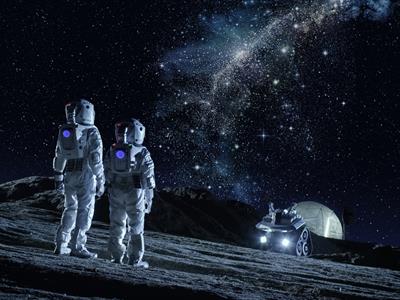
The astronaut and his mother
Selenopolis is a space project that aims to construct a lunar habitat. Since the story takes place on the moon, the narrator took the region for granted, supposing that it had already been used.
The astronaut then took his mother to Selenopolis's long, unending underground passage. He showed his mother the tall structures that have propped up the star-studded sky there. She then told her son that walking on the moon was quite simple for her.
In reality, according to NASA (National Aeronautics and Space Administration) study, walking on the moon is far easier for humans. According to NASA's theoretical calculations, the test subjects should have had an average walk-to-run transition speed of about 1.8 miles per hour (that's compared with transition speeds of 4.5 miles per hour here on Earth).
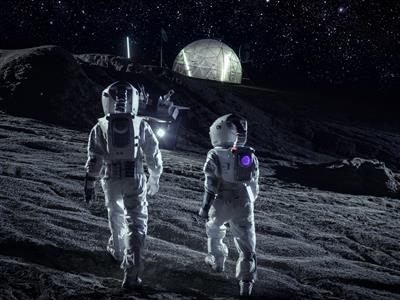
A long walk in the moon
According to the narrator, the astronaut's mother had a young, loud, and clear voice, which leads one to believe she could be a wonderful singer. The astronaut recalled his mother's ability to sing beautifully at all times. His mother used to sing cheerfully and excitedly whenever guests gathered at the astronauts' home during the holidays. However, she never sang during the weekdays, and if she did, it was with sadness since she must have been burdened by the routine labour she did.
The astronaut could also recall his mother's habit of speaking in a singsong tone. At the moment of their meeting, the astronaut could sense his mother's joy in her voice. He reasoned that it was because his mother had journeyed to the moon for the first time. According to the narrator, the astronaut was perplexed as to why his mother's voice echoed so weirdly with a ringing sound. It's because his mother's voice was so familiar and beloved to him that he could tell if there was a difference in it.
There is a reason why the author placed a greater emphasis on the mother's voice-a reason that reflects the story's twist, "Mother's Voice" which will be disclosed at the conclusion.
Through her kind words, the adoring mother attempted to persuade her son to visit their mother planet (Earth). She began to convince her son that when they returned to Earth, they would be able to see the orchards that were blooming there at the time. So, if there aren't too many frosts, those flowers should produce additional fruit. She asked when her son would come to Earth for a vacation after she said those things.

Orchard
When the astronaut heard his mother speak, he was about to say something. He was about to tell his mother about his trip to another galaxy. He resisted the urge to inform her because it was their last meeting. So, during their last meeting, he didn't want to disappoint her.
Furthermore, the astronaut was doubtful whether his mother was aware of his mission, and their meeting was their last, as her worried voice led him to assume so.
Since the astronaut sensed something was amiss and was intent on keeping his journey toward another galaxy a secret, he attempted to change the subject during the conversation. He agreed with his mother's opinion that walking on the moon was quite simple. He then told her that Selenopolis is almost 100 square kilometres in size. Then they rode on a rolling pavement with green plastic strips covering it.
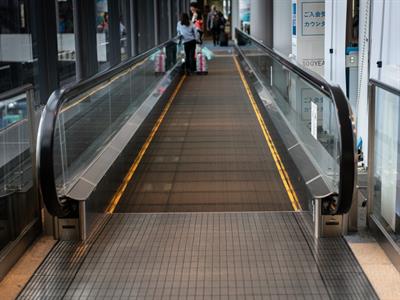
Moving pavement
The mother and son travelled through tunnels and caves from the moon's surface. The walls of those caves sparkled in the light of the quartz lamps. A quartz lamp is an electric lamp in which the envelope is made of quartz, which allows ultraviolet light to pass through it.
The tunnels echoed their voices because the place appeared to be uninhabited, and the caves were large. Their journey came to an end once they returned to the moon's surface via the underground channel after some time. She stood there calmly staring at the massive lily-shaped tent situated above a crater with a circumference of at least a kilometre.
The son explained to his mother that the lily-shaped tent was known as 'The Community of Nations Square' and that people from many countries who worked in Selenopolis would gather there after their day's work. According to the son, even some tourists would pay a visit to the location.
As mother and son conversed, they noticed people travelling along a specific route. They were walking towards a lake where people might swim, the astronaut son told his mother. He even suggested that having a swim on the moon would be an unusual experience. The astronaut's mother, on the other hand, told her son that swimming in the Dnieper River on Earth was preferable to swimming in the Selenopolis River. This tells us two things. To begin with, the astronaut's mother was determined to persuade her son to visit Earth. Her son was more important to her than anything.
The Dnieper River is an important river in Ukraine and Europe. Might be the astronaut and his mother were the inhabitants of Russia.
She then noticed two large spaceships which were pointed toward the black space of the universe. It is so huge, like the size of the Ostankino TV tower in Moscow, Russia. She sighed at its enormous size. An astrodrome is a place to launch spacecraft. The Ostankino Tower is a television and radio tower in Moscow, Russia, which measures 540.1 metres tall. It is the world's 11th tallest tower and Europe's tallest free-standing structure.
The astronaut's mother enquired her son about the two spaceships, to which her son replied that they were the spaceships planned to be launched toward a neighbouring galaxy. She then focused on those rockets where people were engaged in work. Construction and preparation work were going on for those two massive rockets.
The people on those two spaceships looked so small when she viewed them from the place she stood. She then asked her son why people like them try to get into unknown galaxies and cause trouble for themselves, to which her son replied that those two spaceships were reliable and safe for people to travel on. Actually, the astronaut's mother did not mean to inquire about the spaceships' dependability but rather about something else.
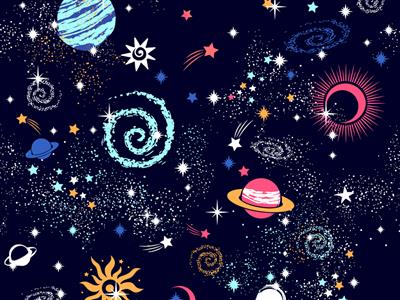
The Galaxy
The astronaut's mother meant to ask her son why people wanted to explore or move to other planets, as she believed it would be better for people to stay and settle on the Moon first, then move on to other planets in the solar system. People were aware of things like soil, water, air, and so on (at least a theoretical knowledge) of planets in the solar system, she reasoned. However, details about a galaxy other than the Milky Way have yet to be discovered, and mankind may encounter peril where they have the least possibility of returning.
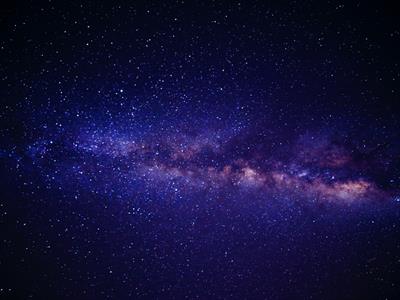
The Milky Way
Previously, the astronaut's mother sighed when she looked at the two large spaceships. Then the astronaut sighed as he listened to his mother's speech and was about to tell his mother something, but he couldn't. He knew he would not have a chance again to meet his mother. His mother began to inquire about what he was about to say, but he remained silent. He couldn't tell his mother the secret that was causing him so much agony.
In actuality, the son's name was also on the list of spaceships voyage set to travel in one of those two spaceships, which was a tragic thing. It was either his ambition or a burning yearning to visit another planet. And he was worried that he would not be chosen for such a voyage to another galaxy when the selection commission was deciding who would be chosen. He wanted to tell his mother about those nerve-wracking moments. But he restrained himself from doing so. After all, it was their final meeting, and he knew he wouldn't come back after such a trip, and he wouldn't get to meet his mother. As a result, he didn't want to ruin such a meeting.
Due to the greater distance and a lack of technical advancement, the astronauts will not be able to return from another galaxy.
The astronaut knew that all mothers are the same and that they do not like being separated from their children for the rest of their lives. The son was afraid that if his mother found out about his mission, she would be upset. He didn't want her to know about his desire and decision to go on a new adventure. So, whatever it was, all he wanted to do was listen to her sweet voice, so he didn't interrupt or argue with her.
The astronaut's mother carried on with her philosophical talk. She went on to say that there was a reason behind why people settle on the Moon so easily over other planets. She believed the Sun, Moon, and Earth all were allotted to humans and that being in the gravitational field of their Earth under the Sun made people more protective. In reality, the sun provides light to both the moon and the Earth. The moon orbits around the Earth and spins around the sun in the same way the Earth does.
As a result, the astronaut's mother believed that our solar system was an ideal place for humans to live. She also believed that staying away from the sun could be harmful.
As the astronaut knew it was their last meeting, he continued to listen to his mother's wonderful, dear, familiar voice as if he were drinking water from a spring on Earth in the shade of trees. The author compares the son's listening activity to drinking spring water because, while spring water has contaminants, it also contains natural minerals that are beneficial to one's health and have a taste that one wants to drink again. Similarly, even if his mother's speech appeared to be philosophical, it was his favourite, sweet voice that he wanted to hear again and again.
His mother's voice appeared to change all of a sudden. She talked in hushed tones, her gaze fixed on the wide blue globe seen from the moon. Despite the fact that she was on the moon and appreciated its beauty, she cannot accept that any planet other than Earth is a better one. She then asked her son if it was a miracle that Earth floats through space without the help of anyone. Although it appears that Earth and other planets are floating, they are not.
In actuality, the Sun's enormous gravitational force pulls them towards it, and planets escape the Sun's pull due to its high velocity. As a result of this circular motion, planets appear to be floating in space.
The astronaut's mother tried to convince her son to return to Earth by showing him the wonders of the planet, such as the ice-covered north pole and the glistening seas that cover 70% of the planet.
The astronaut's mother made numerous attempts to emotionally connect him to Earth's natural wonders, such as orchards, lakes, seas, and snow. The astronaut's mind was also influenced at this point. His mother's words made him appreciate the beauty of the world all over again. For a little moment, his technical mind shifted, and he began to consider the beauty of the Earth. He, too, was struck by the beauty and wonder of nature (Earth).
As the astronaut listened to his mother, he was drawn to the beauty of the Earth and realised that he would miss it (mother planet) if his mission to another galaxy happened, as there would not be a way to return to the Moon or Earth if he went to another galaxy. His heart ached when he realised this, and he became emotionally stuck.
He was well aware that his one-way trip to another galaxy would prevent him from returning to Earth and reuniting with his mother. During this time, the astronaut's mother inquired about his vacation time, which he could utilise for a trip to Earth, to which the astronaut replied that he was unaware. He also said he didn't know when he'd see his mother again. However, it is a pity that the adoring mother and son will not be reunited following the astronaut's galaxy mission.
The adoring son was well aware that there would be no vacation or holiday in his life and that this was the final time he sew his mother. While speaking with his mother, the astronaut's son felt the anguish of having to leave her. He was terrified at the thought of leaving his mother.
The ignorant mother kept pestering her son about his vacation, pleading with him to come at least during the autumn season, when apples, pears, and watermelons were being harvested.
The astronaut replied to his mother, expressing his desire to walk on the dewy grass barefoot. His mother agreed with him, stating that he may go for a walk on the dewy grass and meet up with friends and relatives. She tried yet again to connect with him on an emotional level, but nothing should be able to stop him from completing his adventurous mission to another galaxy, as he only had a few days left.
She was afraid that her son would go into space and be unable to communicate with his family for the rest of his life. Despite the fact that she was unaware of her son's expedition, her maternal impulses led her to fear that she would miss him forever. She also tried to persuade him by saying that the pond in their location on Earth had been deepened and was teeming with fish. She then added that he like fishing, implying that she expects him to meet her on Earth.
A voice interrupted the conversation between the mother and son and demanded that the astronaut report to the office, and the astronaut replied, "coming". Then, the astronaut pressed a button, after which the conversation between mother and son came to an abrupt halt, and the screen went dark.
This indicates that the whole conversation between a mother and her son was just a recording, which he would listen to whenever he thought about his mother. Despite the fact that his goal led him to another galaxy, he couldn't stop thinking about his mother. He felt as if he was strolling on the moon with his mother, staring down at his home planet, whenever he watched the video clip. This shows the love and affection of the astronaut for his mother.
The astronaut's mother feared that one day her son would leave her and never return from space. Finally, it happened that the astronaut and his team had gone off to another galaxy. The sun is the nearest star to the Earth. But, they left the sun, which became a 12th-magnitude star from the place they reached and could only be seen through a telescope. Above all, the crew was unable to see Earth, their home planet on which they were born and raised.
The author concludes by stating that humanity is in its youth, implying that it is the effort of youngsters that aids humanity. In this narrative, the astronaut adored his mother. However, when his ambition and his mother's affection became entwined, he chose his ultimate aim since he was more enthusiastic about it. He never wanted to lose out on the chance to visit another galaxy. The author emphasises the importance of young people's curiosity, ambitions and humanity that help humans.